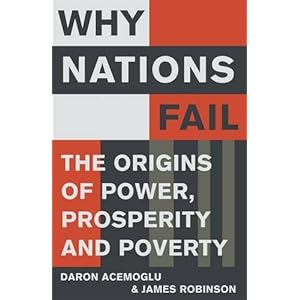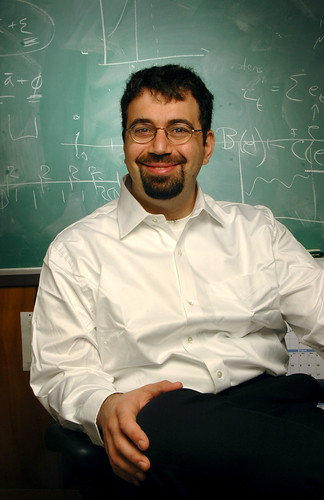
Daron Acemoglu writes in Esquire: We are the rich, the haves, the developed. And most of the rest — in Africa, South Asia, and South America, the Somalias and Bolivias and Bangladeshes of the world — are the nots. It's always been this way, a globe divided by wealth and poverty, health and sickness, food and famine, though the extent of inequality across nations today is unprecedented: The average citizen of the United States is ten times as prosperous as the average Guatemalan, more than twenty times as prosperous as the average North Korean, and more than forty times as prosperous as those living in Mali, Ethiopia, Congo, or Sierra Leone.
The question social scientists have unsuccessfully wrestled with for centuries is, Why? But the question they should have been asking is, How? Because inequality is not predetermined. Nations are not like children — they are not born rich or poor. Their governments make them that way.

Daron Acemoglu
You can chart the search for a theory of inequality to the French political philosopher Montesquieu, who in the mid-eighteenth century came up with a very simple explanation: People in hot places are inherently lazy. Other no less sweeping explanations soon followed: Could it be that Max Weber's Protestant work ethic is the true driver of economic success? Or perhaps the richest countries are those that were former British colonies? Or maybe it's as simple as tracing which nations have the largest populations of European descent? The problem with all of these theories is that while they superficially fit some specific cases, others radically disprove them.
It's the same with the theories put forth today. Economist Jeffrey Sachs, director of Columbia University's Earth Institute, attributes the relative success of nations to geography and weather: In the poorest parts of the world, he argues, nutrient-starved tropical soil makes agriculture a challenge, and tropical climates foment disease, particularly malaria. Perhaps if we were to fix these problems, teach the citizens of these nations better farming techniques, eliminate malaria, or at the very least equip them with artemisinin to fight this deadly disease, we could eliminate poverty. Or better yet, perhaps we just move these people and abandon their inhospitable land altogether.

Jared Diamond, the famous ecologist and best-selling author, has a different theory: The origin of world inequality stems from the historical endowment of plant and animal species and the advancement of technology. In Diamond's telling, the cultures that first learned to plant crops were the first to learn how to use a plow, and thus were first to adopt other technologies, the engine of every successful economy. Perhaps then the solution to world inequality rests in technology — wiring the developing world with Internet and cell phones.
And yet while Sachs and Diamond offer good insight into certain aspects of poverty, they share something in common with Montesquieu and others who followed: They ignore incentives. People need incentives to invest and prosper; they need to know that if they work hard, they can make money and actually keep that money. And the key to ensuring those incentives is sound institutions — the rule of law and security and a governing system that offers opportunities to achieve and innovate. That's what determines the haves from the have-nots — not geography or weather or technology or disease or ethnicity.
Put simply: Fix incentives and you will fix poverty. And if you wish to fix institutions, you have to fix governments. (source: Esquire)
"Why Nations Fail: The Origins of Power, Prosperity and Poverty" -- Daron Acemoglu
No comments:
Post a Comment